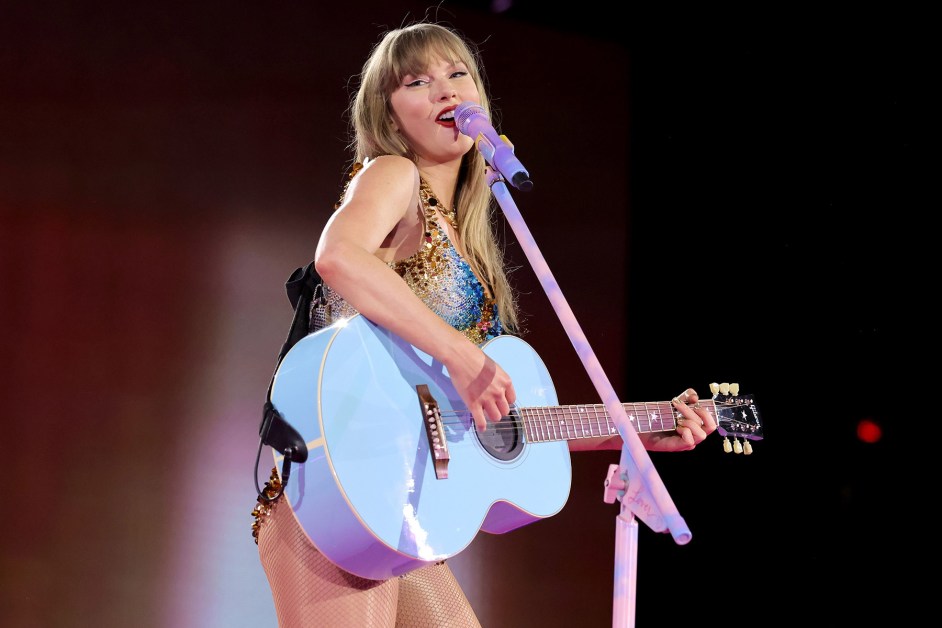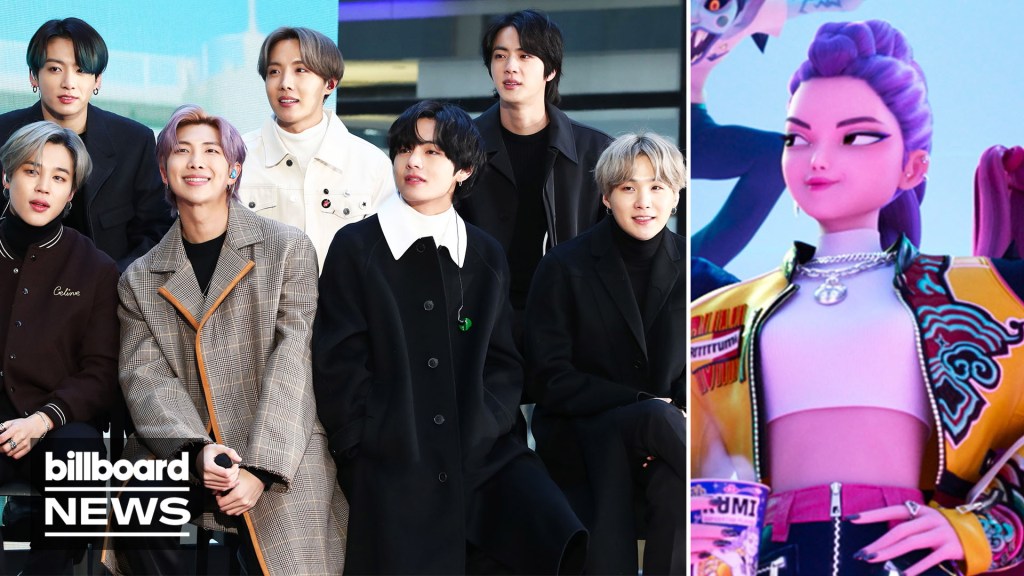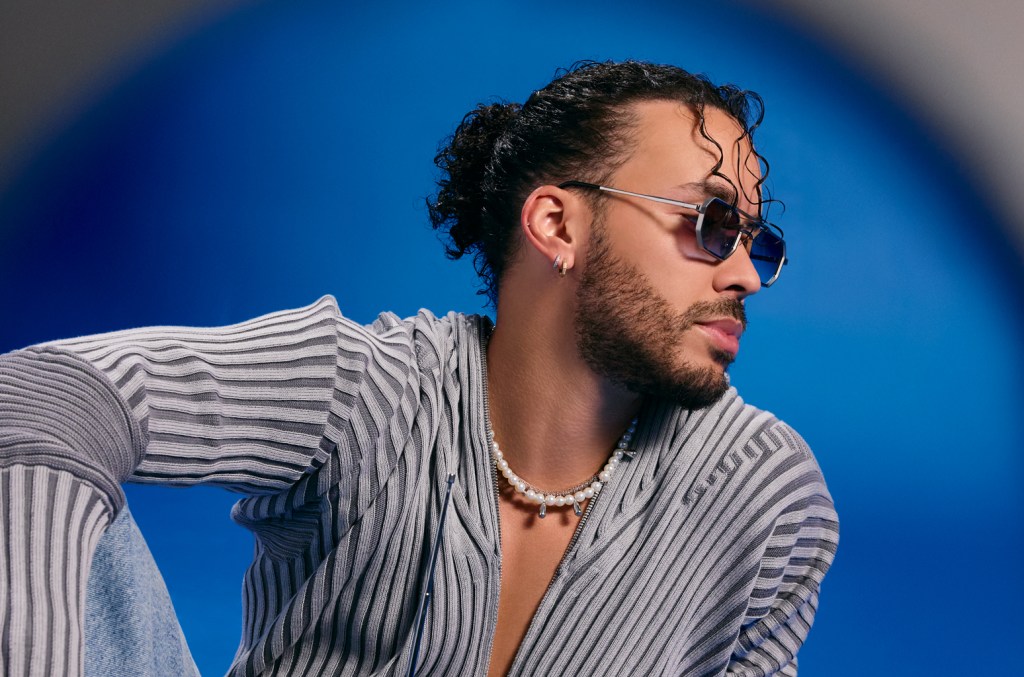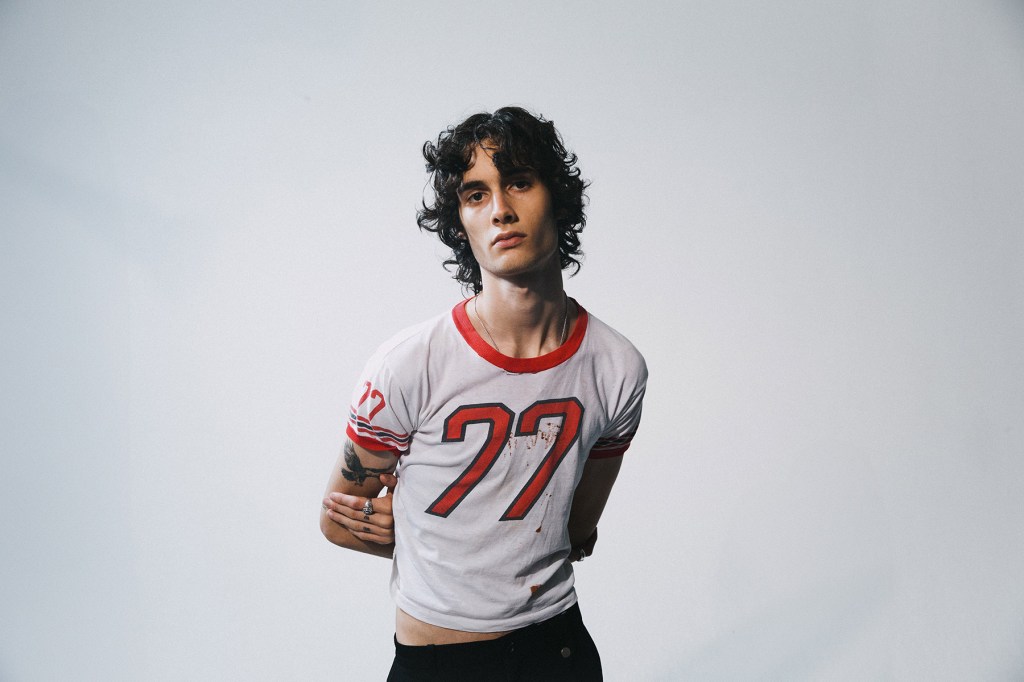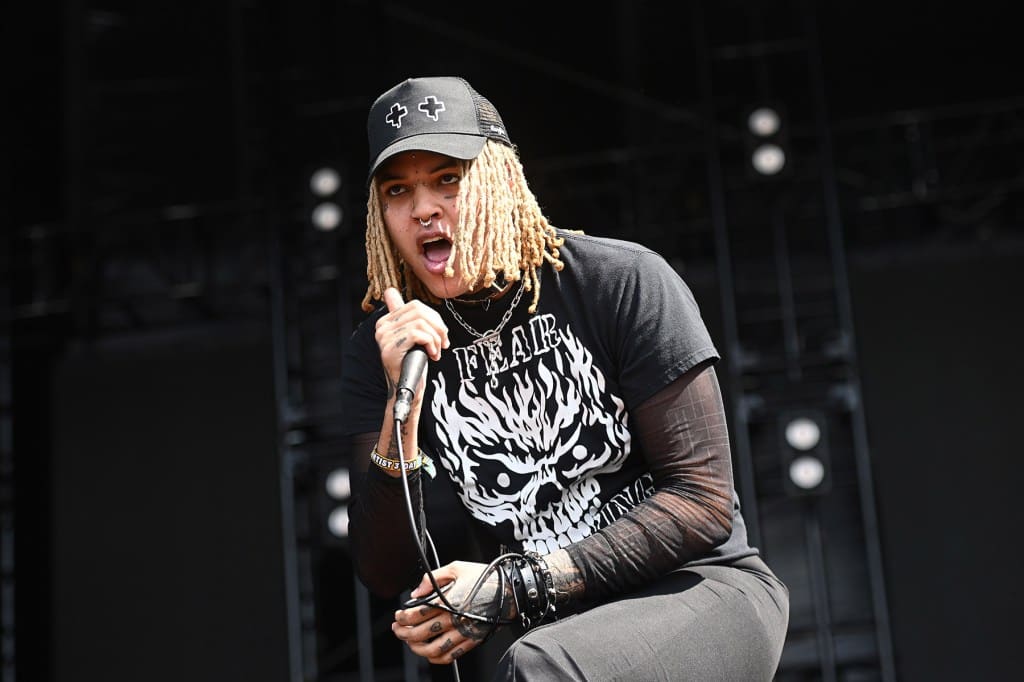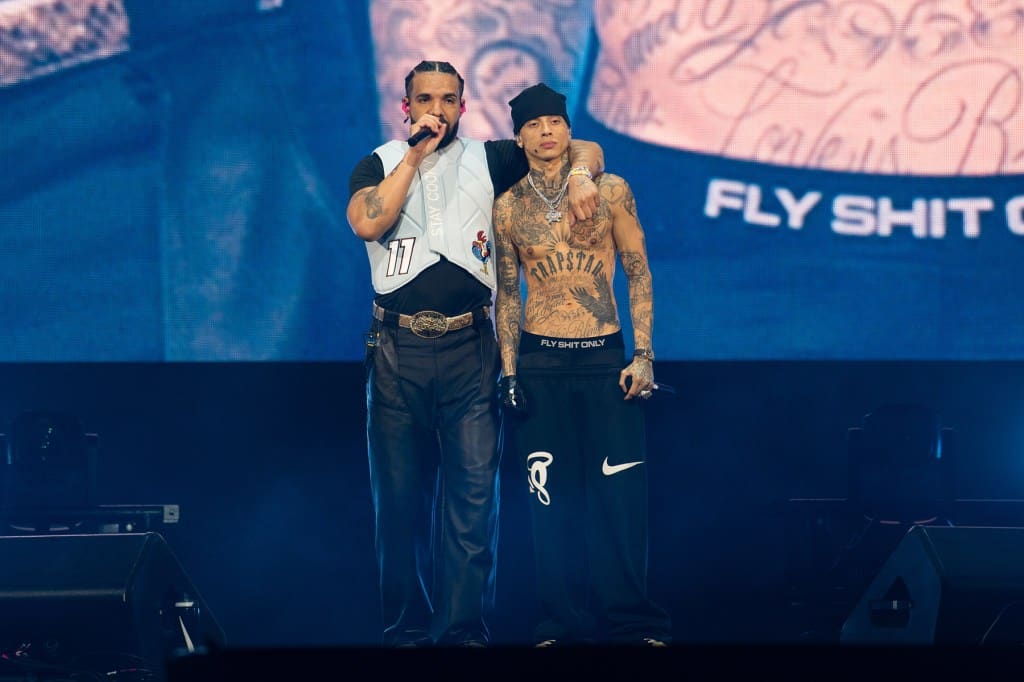Music News
Page: 5
Trending on Billboard
Taylor Swift is closing out the historic Eras Tour with one more screen event. On Tuesday (Dec. 2), Disney+ released the first official trailer for Taylor Swift | The Eras Tour | The Final Show, a full-length concert film documenting the tour’s final performance in Vancouver, B.C.
Explore
See latest videos, charts and news
Set to arrive Dec. 12, the new film differs from the existing Disney+ version released earlier this year. This edition includes the complete Tortured Poets Department portion of the show, which was added to the tour following the album’s April 2024 release and was not included in the theatrical cut or the previous streaming edit. The Vancouver stop marked the only performance where the entire TTPD set appeared in full.
In the trailer, Swift addresses the crowd directly, acknowledging the weight of the moment. “We’ve had so long to prepare for the end of this tour, and we get to play one last show for you here tonight,” Swift says. “I want to thank every single one of you for being a part of the most thrilling chapter of my entire life to date.”
The Final Show film arrives alongside a companion docuseries, Taylor Swift | The Eras Tour | The End of an Era, which premieres the same day.
The series offers a deeper look behind the scenes of the record-breaking global tour, including backstage footage, rehearsal clips, and Swift’s commentary on how she conceptualised and executed the nearly three-hour production in its various forms.
The docuseries features appearances from opening acts Gracie Abrams and Sabrina Carpenter, as well as special guests Ed Sheeran and Florence Welch.
Two episodes of The End of an Era debut on Dec. 12, with new instalments rolling out in two-episode batches in subsequent weeks. The series is directed by Don Argott and co-directed by Sheena M. Joyce, produced by Object & Animal.
Meanwhile, The Final Show is directed by Glenn Weiss and produced by Taylor Swift Productions in association with Silent House Productions, marking the latest in Swift’s expanding catalogue of concert films and tour documentaries.
The Vancouver performance capped what became the highest-grossing tour of all time, with Swift’s The Eras Tour breaking attendance records, global streaming milestones and reshaping the touring landscape across 2023–2025.
Watch the trailer for Taylor Swift | The Eras Tour | The Final Show below. For more, visit disneyplus.com.
Trending on Billboard
LIV Golf Adelaide has locked in global DJ and producer John Summit as the Saturday headliner for its 2026 tournament, adding another major name to the event’s expanding live music program.
Explore
See latest videos, charts and news
Summit will perform Feb. 14 at 7 p.m. following round three at The Grange Golf Club. The Miami-based artist — who has earned two No. 1 hits on the U.S. Dance Radio chart and multiple Top 10 entries on Billboard’s Hot Dance/Electronic Songs chart — brings his explosive live show to Australia for one of his few local appearances next year. His set is expected to feature fan favorites including “Where You Are” and “Shiver.”
The announcement rounds out a four-day entertainment lineup that already includes Peking Duk, Royel Otis and FISHER. Canberra duo Peking Duk will kick off the music program on Thursday, Feb. 12, performing directly after the opening round with a set that includes their breakout hits “High” and “Stranger,” along with new material. Royel Otis headlines Friday, while FISHER returns Sunday to close out the tournament.
All concerts are included in daily Grounds Pass and hospitality tickets, meaning fans attending Thursday and Saturday events will automatically have access to the live performances. Limited tickets remain available at LIVGolf.com, including Grounds Plus and select premium hospitality packages in the Barossa, Birdie Shack and Ripper Point areas.
For the first time, Summit’s Saturday set will also be streamed internationally on the LIV Golf YouTube channel, part of the league’s push to expand its global fan base.
“LIV Golf is known for bringing world-class DJs and musicians to Adelaide, and we are ecstatic to welcome John Summit this February,” said Ross Hallett, LIV Golf’s executive vice president and head of events. “His high-energy performances perfectly complement the vibe of LIV Golf.”
South Australian premier Peter Malinauskas added that hosting Summit “sets a new benchmark” for the state’s live entertainment offerings, noting that three of the four headlining acts next year are home-grown Australian artists.
Since launching in 2022, LIV Golf has woven live music into the fabric of its tournament experience, hosting more than 30 concerts in 2025 alone — a number expected to climb to 40 in 2026.
Trending on Billboard Rüfüs Du Sol have officially made touring history. The Grammy-winning Australian trio has been recognised for delivering the highest-selling electronic tour of all time, following a record-breaking run of global dates on their Inhale / Exhale World Tour. Explore See latest videos, charts and news The group was presented with a commemorative […]
The pop superstar is the sole writer credited on more than 60 tracks.
12/1/2025
Trending on Billboard This is partner content. Not sure what to get a music lover this Christmas? If you’re looking for the best gifts for ‘KPop Demon Hunters’ watchers, BTS fans and hip-hop lovers keep watching to see what you can get them! Tetris Kelly: What’s underneath the tree for music lovers this Christmas season? […]
Trending on Billboard
Prince Royce‘s cover of Backstreet Boys‘ “I Want It That Way” reaches new heights, as the song climbs 2-1 on Billboard’s overall Latin Airplay chart (dated Dec. 6). The song also banks its fifth week atop the Tropical Airplay list.
“Reaching No. 1 on both the Latin Airplay and Tropical Airplay charts with ‘I Want It That Way’ is incredibly special to me — especially knowing it marks my 19th No. 1 on the former,” Royce tells Billboard. “This song represents a bridge between cultures and generations, and I’m grateful to the fans and radio stations who continue to believe in my music and take this journey with me.”
“I Want It That Way” rises 2-1 with 10 million in audience impressions in the United States during the tracking week ending Nov. 27, as reported by Luminate. The song’s 23% improvement from the week prior ejects Karol G and Feid’s “Verano Rosa” from No. 1, as the latter drops to No. 9 with a 5.3 million impressions, down 35%.
With the reimagined “I Want It That Way,” Prince Royce earns his 19th No. 1 on Latin Airplay. The track debuted on Tropical Airplay in August and has now spent five weeks atop that list.
Royce strengthens his position as the tropical act with the second-most rulers on the 30-year-old Latin Airplay chart, trailing only Romeo Santos, who continues to lead with 22 chart-toppers.
“I Want It That Way” builds on the success of the album Eterno’s first single, a redux of the Bee Gees’ “How Deep Is Your Love,” which became Royce’s first track from his top 10 set to reach No. 1 on Latin Airplay (one week in June).
As mentioned, “I Want It That Way” adds a fifth week atop the Tropical Airplay chart, matching the No. 1 run of Royce’s “How Deep” track.
Elsewhere, thanks to its radio haul, the song rises to its No. 23 peak on the multimetric Hot Latin Songs, which combines radio airplay, streaming activity and digital sales into its formula.
El Fantasma Wins Big: Beyond the new No. 1 on the overall Latin Airplay chart, the Regional Mexican Airplay ranking sports a new winner, El Fantasma. The singer-songwriter’s new single “La Lotería” jumps 3-1 for its first week in charge, following a 43% gain in audience impressions during the tracking period, to 8.1 million.
Released via Afinarte Music in July, “La Lotería,” a slow but steady climber on Regional Mexican Airplay, earns El Fantasma a ninth chart-topper, and his second ruler of 2025 (“Ya Me Vale Madre” reigned for one week in June).
The song also breaks new ground on Latin Airplay, moving from No. 9 to No. 3.
All Billboard charts dated Dec. 6 will update tomorrow, Dec. 2, on Billboard.com.
Trending on Billboard
Key Investment Group (KIG) is asking a federal judge to throw out a recently filed Federal Trade Commission (FTC) lawsuit against the ticket resale company over alleged violations of the Better Online Ticket Sales (BOTS) Act.
In August, the FTC filed suit against KIG, alleging the company violated the BOTS Act when it purchased thousands of Taylor Swift tickets for her 2023-2024 Eras Tour and resold them for more than $1 million in profit. The lawsuit was filed days before a similar complaint was filed against Ticketmaster for allegedly refusing to enforce its own rules against scalpers and allowing unrestricted resale on its platform. Since then, Ticketmaster has made changes to its resale policies and, like KIG, has argued that the FTC is misapplying the BOTS Act.
Related
The FTC sued KIG in August, alleging the Colorado-based ticket resale operation used networks of accounts, IP masking, SIM boxes and other technical tools to evade Ticketmaster’s ticket-purchasing limits and acquire hundreds of high-demand tickets for resale. The agency claims these tactics “circumvented” the ticketing giant’s security controls in violation of the BOTS Act.
KIG is the first of the two firms to file a motion to dismiss. In a sweeping 36-page missive filed on Nov. 24, KIG attorney Bezalel A. Stern with law firm Manatt, Phelps and Phillips argues that the FTC’s complaint attempts to regulate long-established broker practices — like using multiple IP addresses to buy tickets or operating dozens of Ticketmaster accounts — that do not involve bots.
“KIG does not use bots. KIG does not circumvent any security measure,” the company tells the court, arguing the FTC is attempting to impose an unprecedented interpretation of the law that contradicts the law’s legislative history and the FTC’s own prior guidance.
Related
Stern stresses that the BOTS Act was explicitly drafted to stop “malicious computer code” that lets bot operators overwhelm ticketing websites and jump ahead of human buyers. KIG argues that since it employs human buyers — not automated scripts — the law does not apply. “Without the use of bots, there can be no BOTS Act violation,” KIG claims in the filing.
KIG’s brief also turns the FTC’s own evidence against it. In its lawsuit, the FTC included Ticketmaster records showing the ticketing company tracked KIG’s accounts and purchasing practices — even those created under alternate names — and knowingly allowed them. In a 2024 Ticketmaster email cited by the FTC, a Ticketmaster representative tells KIG that purchases made across different accounts are “within guidelines” so long as each individual account respects the posted per-account ticket limit. KIG’s motion argues that email destroys the FTC’s theory of unlawful “circumvention,” because ticket brokers at KIG cannot “avoid,” “evade” or “deceive” Ticketmaster’s controls when Ticketmaster explicitly authorizes the behavior.
KIG also highlights a contradiction between the FTC’s case against it and the agency’s separate September lawsuit against Ticketmaster and Live Nation. In that parallel case, the FTC alleges the ticketing company “knowingly allows, and in fact encourages, brokers to use multiple Ticketmaster accounts.” KIG argues the FTC cannot simultaneously claim Ticketmaster encourages multi-account purchasing while accusing KIG of “circumventing” the very same rules.
Related
The filing emphasizes that the FTC never alleges that KIG purchased tickets “within seconds” or at speeds indicative of automated software — the hallmark of bot activity described in past enforcement cases. According to KIG, the FTC is trying to convert everyday reseller practices into federal violations simply because they involve scale.
The FTC’s cited evidence — including a bank audit, news reports and previous consent decrees involving actual bot operators — does not establish that KIG knew its conduct was illegal under the BOTS Act, KIG’s motion claims.
Elsewhere in the motion, KIG alleges that the case began with a politically charged push by the White House to crack down on scalping. The company notes that minutes after President Trump — joined by Kid Rock — signed a March 2025 executive order demanding aggressive enforcement of the BOTS Act, the FTC sent KIG a draft complaint threatening litigation unless the company admitted wrongdoing.
KIG says the agency is now “expanding the BOTS Act far beyond its written and intended scope,” and warns that if the FTC’s theory were adopted, “every person or company who purchases tickets using more than one account” could be accused of violating federal law.
U.S. District Judge George L. Russell III will now consider the motion and whether to dismiss the government’s case before discovery begins. If not, the FTC will proceed to try to prove that KIG’s coordinated multi-account strategy amounted to illegal bot-level activity.
Trending on Billboard
Sombr, Geese and Sasha Keable are among the artists to feature on the BBC Radio 1’s Sound of 2026 longlist published Monday (Dec. 1).
The annual list is described by the BBC as spotlighting “ten exciting new artists tipped for success next year” and has become “a trusted marker of future success.” Chappell Roan was the most recent victor of the Sound Of prize in 2025.
Joining the aforementioned trio is Alessi Rose, Chloe Qisha, Florence Road, Jim Legxacy, kwn, Royel Otis, and Skye Newman. The top five from the list will be announced from Jan. 5, 2026 onwards, culminating in the winner on Jan. 9.
The shortlist and winner is compiled and selected by over 170 U.K. music industry professionals and artists including Elton John, Dua Lipa, JADE, Olivia Dean, YUNGBLUD and Sam Smith.
Sound Of was established in 2003 and has become a crucial part of the U.K. music industry’s tips season. Adele, Lady Gaga, RAYE, The Weeknd, Dua Lipa, Billie Eilish and Lewis Capaldi are among the artists to appear on the list over its history. Recent winners have included The Last Dinner Party (2024), FLO (2023), PinkPantheress (2022), Pa Salieu (2021) and Celeste (2020).
For the 2026 edition, eligible artists must not have had more than three top 10 singles in the Official Singles Chart, and cannot have been a lead artist on a No. 1 album in the Official Albums Chart before October 6, 2025. Previously, artists were not allowed more than two U.K. top 10 albums or two U.K. top 10 singles.
Sombr has the highest-charting LP among nominees with 2025’s I Barely Know Her (No. 10), followed by Geese’s acclaimed third album Getting Killed (No. 26). Sombr just makes cut with three top 10 U.K. singles (“Back to Back”, “Undressed” and “12 to 12”), while Skye Newman boasts three top 40 U.K. singles, though only “Family Matters” has reached the top 10 (No. 5).
The changes were made in response to criticism of the criteria following Chappell Roan’s victory in 2025, a year following her debut album The Rise and Fall of a Midwest Princess, which also hit the top spot on the U.K. charts. She featured on the longlist with Barry Can’t Swim, Confidence Man, Doechii, English Teacher, Ezra Collective, Good Neighbours, KNEECAP, mk.gee, Myles Smith and Pozer.
BBC Sound Of 2026 longlist
Alessi Rose
Chloe Qisha
Florence Road
Geese
Jim Legxacy
kwn
Royel Otis
Sasha Keable
Skye Newman
sombr
Trending on Billboard Florida rapper POORSTACY, real name Carlito Milfort Jr., has died at age 26. As confirmed by the Boca Raton Police Department, the 26-year-old rapper died Saturday after an “incident” at a disclosed address. Fans have flooded POORSTACY’s Instagram posts with comments implying that he died by suicide, but the cause of death […]
Trending on Billboard Central Cee has said only one rapper has made him feel broke, and it was none other than the 6 God himself. The U.K. rapper was interviewed by Instagram channel Rambo Is Talking, and when asked if any rapper has ever made him feel broke, had only one answer in mind: Drake. […]

 State Champ Radio
State Champ Radio 


